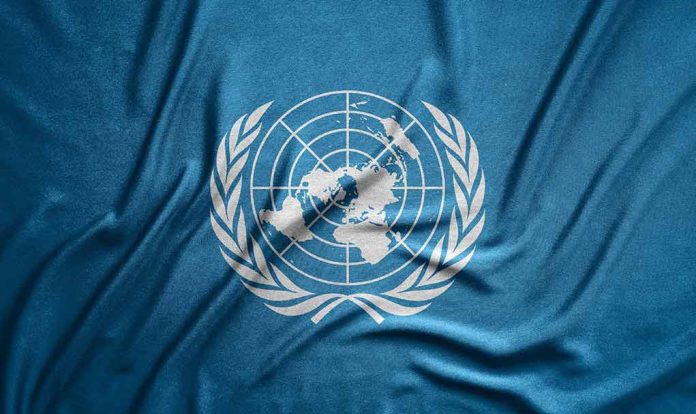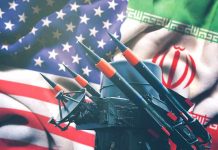
President Donald Trump’s recent directive to withdraw support from key United Nations organizations has sparked significant discourse, leaving many to question the future impact on global human rights, education, and humanitarian aid.
Key Takeaways
- Trump announced plans to withdraw from the U.N. Human Rights Council and end funding for UNRWA.
- The decision reflects a broader strategy to align international engagements with U.S. national interests.
- Significant funding cuts to UN bodies may influence international relations and the efficacy of aid services.
- U.S. review of participation in UNESCO alongside funding discrepancies evaluation at the United Nations.
Strategic Shift in U.S. Foreign Policy
President Trump has announced the United States’ withdrawal from the United Nations Human Rights Council and cessation of funding for the United Nations Relief and Works Agency (UNRWA). This decision redefines America’s engagement with these organizations, citing misalignment with U.S. priorities. The U.N. Human Rights Council, accused of bias against Israel, and UNRWA, alleged of housing terrorists, face significant American disengagement. These changes form part of a broader assessment of all international affiliations to ensure core alignment with U.S. interests.
The administration is communicating this shift to U.N. bodies, while simultaneously conducting funding evaluations of all international treaties and agreements. This sweeping review seeks to ensure harmony with national goals, which President Trump argues the U.N. has yet to accomplish. “I’ve always felt that the U.N. has tremendous potential. It’s not living up to that potential right now. … They’ve got to get their act together,” Trump remarked.
Today, @POTUS signed an Executive Order withdrawing the United States from the UN Human Rights Council (UNHRC) and prohibiting any future funding for the UN Relief and Works Agency for the Near East (UNRWA). The Executive Order also requires the Secretary of State to review and…
— Department of State (@StateDept) February 5, 2025
Review of U.S. Participation in UNESCO
Alongside the directive, President Trump has initiated a review of the U.S.’s involvement in UNESCO and U.N. funding, attributing the review to disproportionate financial contributions among member countries. As the largest contributor, providing 22% of the U.N.’s regular budget, the U.S. pares back involvement to ensure that its financial assistance aligns with national interests. Trump’s approach finds roots in concerns over perceived inefficiencies within these international pillars, compounded by accusations of systemic anti-Israeli bias over these organizations.
Previously, in 2018, the Trump Administration had pulled the U.S. out of the Human Rights Council and suspended UNRWA funding, actions that Biden later reversed. However, the continued criticism of UNRWA’s alleged ties to Hamas seems to justify its renewed suspension. As U.S. legislation halts any possible funding resurgence to the Agency until at least March 2025, Trump’s order underscores a long-standing diplomatic stance.
U.S. Engagement with Global Treaties Under Scrutiny
Trump’s sweeping directive involves critically assessing all international treaties and organizations, ensuring alignment with American interests. This marks a turning point in how America strategizes engagement on a global scale. Actions from the White House, including terminating participation in UNHRC and ceasing UNRWA funding, sharply delineate U.S. priorities, drawing both domestic support and international skepticism. The administration endeavors to reinforce national allegiance while delivering a clear message regarding its commitment to defending perceived injustices.
Amid debates over humanitarian and educational impacts, these moves signify a concerted effort to define U.S. international commitments. While observers watch closely, the reverberations of these policy shifts are likely to affect American, U.N., and global landscapes in the coming years.
Sources:
- Trump announces withdrawal from UN human rights body and halt to funding for Palestinian refugees
- Trump withdraws the U.S. from the United Nations Human Rights Council
- WITHDRAWING THE UNITED STATES FROM AND ENDING FUNDING TO CERTAIN UNITED NATIONS ORGANIZATIONS AND REVIEWING UNITED STATES SUPPORT TO ALL INTERNATIONAL ORGANIZATIONS




